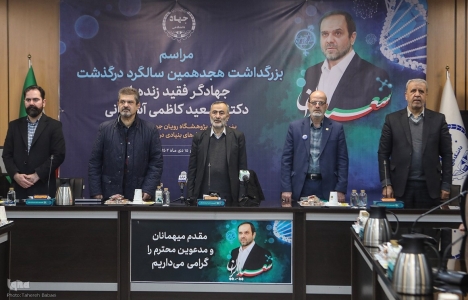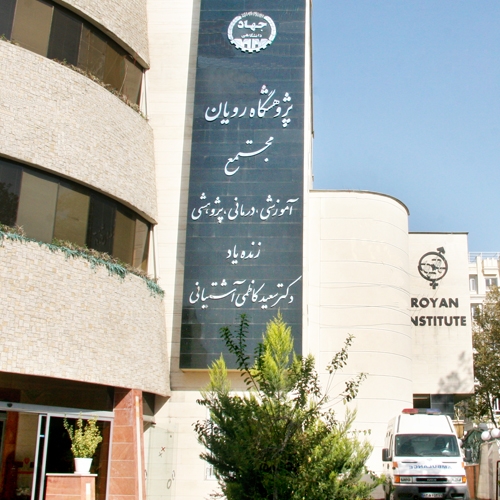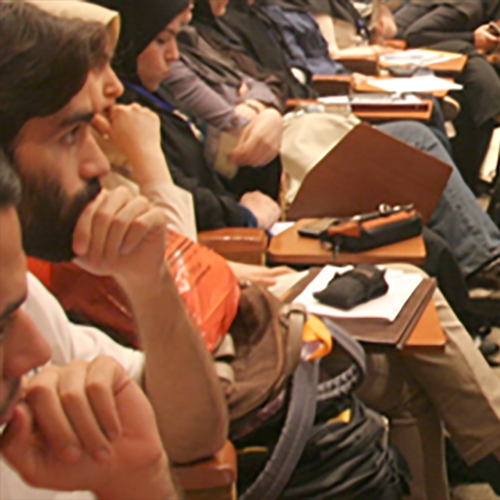Legal and Ethical Challenges of Third-Party Involvement in Infertility Treatment
 The scientific conference on "Legal and Ethical Challenges of Third-Party Involvement in Infertility Treatment" was held at Golzar Shahada's conference hall, Behesht Zahra cemetery.
The scientific conference on "Legal and Ethical Challenges of Third-Party Involvement in Infertility Treatment" was held at Golzar Shahada's conference hall, Behesht Zahra cemetery.According to the public relations and international affairs, A scientific and specialized meeting titled "Legal and Ethical Challenges of Third-Party Involvement in Infertility Treatment" was held on January 5th, at Golzar Shahada Behesht Zahra Conference Hall, which coincided with the second day of the commemoration ceremony of the 18th anniversary of Dr. Saeed Kazemi Ashtiani, the founder of Royan Institute.
During a meeting attended by renowned professors in the fields of ethics and medical law, such as Dr. Reza Samani Omani, doctor of medicine and director of the ethics and medical law department of Royan Institute, Dr. Sadegh Shariati-Nesab, scientific faculty member and member of the ethics and medical law department of Royan Institute, Dr. Seyed Taha Merghati, a member of the Ethics and Medical Law Department of Royan Institute and a professor at Tehran University, and Dr. Mohammad Reza Rezania Moallem, doctor of jurisprudence and private law and member of the Ethics and Law Department of Royan Institute, the various challenges that infertility poses to individuals, society, and families were discussed at length. The meeting involved a thorough examination of the problems that arise due to infertility.
During the meeting, Dr. Yaghoub Fathollahi, the vice president of research and technology at ACECR, emphasized the government's responsibility to solve the issue of infertility, which affects millions of people and communities. It is estimated that approximately one in six people of reproductive age worldwide will experience infertility during their lifetime. Infertility has damaging social effects on couples, especially women. They may experience violence, divorce, stigma, stress, depression, anxiety, and low self-esteem. He stated that fertility care comprises the prevention, diagnosis, and treatment of infertility. Equitable and equitable access to reproductive care remains a challenge in many countries, particularly in low- and middle-income countries. National universal health coverage benefit packages often do not prioritize fertility care. Inequalities in accessing reproductive care services impact marginalized populations such as the poor, single, illiterate, and unemployed.
Publish date: 2024/01/07





